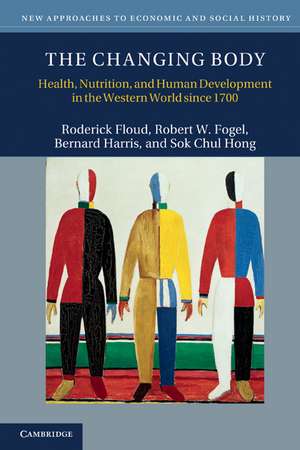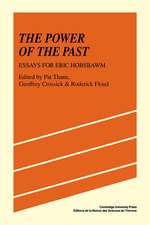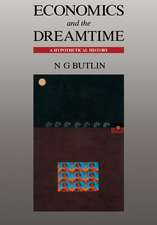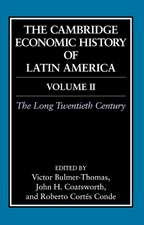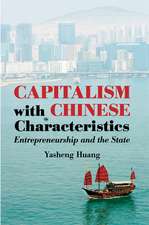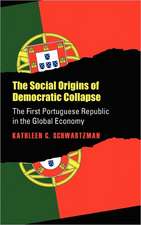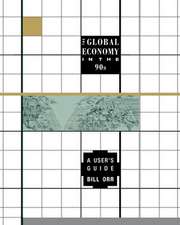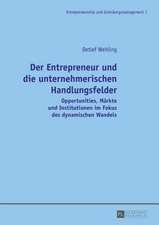The Changing Body: Health, Nutrition, and Human Development in the Western World since 1700: New Approaches to Economic and Social History
Autor Roderick Floud, Robert W. Fogel, Bernard Harris, Sok Chul Hongen Limba Engleză Paperback – 30 mar 2011
| Toate formatele și edițiile | Preț | Express |
|---|---|---|
| Paperback (1) | 281.61 lei 43-57 zile | |
| Cambridge University Press – 30 mar 2011 | 281.61 lei 43-57 zile | |
| Hardback (1) | 707.08 lei 43-57 zile | |
| Cambridge University Press – 30 mar 2011 | 707.08 lei 43-57 zile |
Preț: 281.61 lei
Nou
Puncte Express: 422
Preț estimativ în valută:
53.88€ • 56.41$ • 44.59£
53.88€ • 56.41$ • 44.59£
Carte tipărită la comandă
Livrare economică 07-21 aprilie
Preluare comenzi: 021 569.72.76
Specificații
ISBN-13: 9780521705615
ISBN-10: 0521705614
Pagini: 456
Ilustrații: 86 b/w illus. 74 tables
Dimensiuni: 152 x 228 x 22 mm
Greutate: 0.73 kg
Editura: Cambridge University Press
Colecția Cambridge University Press
Seria New Approaches to Economic and Social History
Locul publicării:Cambridge, United Kingdom
ISBN-10: 0521705614
Pagini: 456
Ilustrații: 86 b/w illus. 74 tables
Dimensiuni: 152 x 228 x 22 mm
Greutate: 0.73 kg
Editura: Cambridge University Press
Colecția Cambridge University Press
Seria New Approaches to Economic and Social History
Locul publicării:Cambridge, United Kingdom
Cuprins
1. Our changing bodies: 300 years of technophysio evolution; 2. Investigating the interaction of biological, demographic, and economic variables from fragmentary data; 3. The analysis of long-term trends in nutritional status, mortality, and economic growth; 4. Technophysio evolution and human health in England and Wales since 1700; 5. Height, health, and mortality in continental Europe, 1700–2100; 6. The American experience of technophysio evolution; 7. Conclusion.
Recenzii
'The scope of this book is breathtaking in its description of the remarkable changes in human constitutions in the Western World over the last 300 years at a pace never seen before in history. Written from a multidisciplinary perspective, it will inform and excite persons in the health and social sciences and give them a new and valuable perspective on modern human development.' Nevin S. Scrimshaw, Massachusetts Institute of Technology and World Food Prize Laureate
'This contribution to a topic that is rarely out of the news for long is by four distinguished scholars, each an expert in his field, and one of them, Robert Fogel, is a winner of the Nobel Prize for Economics. Volumes produced as cooperative ventures can sometimes appear disjointed, but this is not the case here. There is a pleasing unity in style and presentation.' The Times Higher Education Supplement
'It has long been widely believed that the upper class look down on the middle and lower classes. Now science has established that this is literally, as well as figuratively, so. Thirty years of research by leading economists, biologists, historians and demographers has confirmed the towering status of the high and mighty. The Changing Body … concludes that there is a clear link between height and earnings. Increases in both, over the past 300 years, are greater than over the three preceding millennia, demonstrating that the changes are too rapid to be evolutionary. And the secret lies in nutrition.' The Independent
'Rich, complex but surprisingly readable, The Changing Body is a paradigm-shifting contribution. A sub-discipline that began modestly by identifying height as a secondary indicator of wellbeing now provides a way to conceptualize economic, indeed human, progress.' Jane Humphries, Oxford University
'Roderick Floud and Robert Fogel pioneered the study of the links between nutrition, health, and individual productivity in the past. In this book they, and their two colleagues Bernard Harris and Sok Chul Hong, conduct a masterful survey of what has been achieved in this field in the past quarter century, providing persuasive and thought-provoking evidence whose importance has been greatly underrated.' Tony Wrigley, University of Cambridge
'The authors of The Changing Body demonstrate the value of anthropometric data and information on health and mortality to the understanding of long-term changes in the economic development of the US, England, France, and elsewhere in continental Europe. They provide important new insights into the causes and consequences of economic change in the modern world.' Stanley L. Engerman, John H. Munro Professor of Economics and Professor of History, University of Rochester
'For nearly three decades, the Nobel Prize-winning economist Robert W. Fogel and a small clutch of colleagues have assiduously researched what the size and shape of the human body say about economic and social changes throughout history, and vice versa. Their research has spawned not only a new branch of historical study but also a provocative theory that technology has sped human evolution in an unprecedented way during the past century.' New York Times
'… one of the most comprehensive reviews of mankind's development ever undertaken. Nobel Prize-winning US economist Robert Fogel and a team of colleagues spent three decades pulling together statistics to show how we have changed since 1700.' Daily Mail
'The statistical analysis involved is subtle, sophisticated … The anthropometric approach to history described in this book is impressive and skilful, and is likely to become routine in the study of future influences on human development.' Nature
'The Changing Body offers an authoritative summary of the field of technophysio evolution … [the authors] generate new insights into contemporary development processes.' Science
'Applies a scientific rigour that is rarely encountered in historical work … Historians do not understand science, and scientists do not get history. Fortunately the twain meet in this work which offers a treasure trove for future scholars.' The London Magazine
'… a must-read for anyone interested in the insights that anthropometric history has produced in recent decades.' International Review of Social History
'… The Changing Body is a very important book … well written and organised … an excellent book that I will reread again and again for insight and inspiration.' Journal of Continuity and Change
'This contribution to a topic that is rarely out of the news for long is by four distinguished scholars, each an expert in his field, and one of them, Robert Fogel, is a winner of the Nobel Prize for Economics. Volumes produced as cooperative ventures can sometimes appear disjointed, but this is not the case here. There is a pleasing unity in style and presentation.' The Times Higher Education Supplement
'It has long been widely believed that the upper class look down on the middle and lower classes. Now science has established that this is literally, as well as figuratively, so. Thirty years of research by leading economists, biologists, historians and demographers has confirmed the towering status of the high and mighty. The Changing Body … concludes that there is a clear link between height and earnings. Increases in both, over the past 300 years, are greater than over the three preceding millennia, demonstrating that the changes are too rapid to be evolutionary. And the secret lies in nutrition.' The Independent
'Rich, complex but surprisingly readable, The Changing Body is a paradigm-shifting contribution. A sub-discipline that began modestly by identifying height as a secondary indicator of wellbeing now provides a way to conceptualize economic, indeed human, progress.' Jane Humphries, Oxford University
'Roderick Floud and Robert Fogel pioneered the study of the links between nutrition, health, and individual productivity in the past. In this book they, and their two colleagues Bernard Harris and Sok Chul Hong, conduct a masterful survey of what has been achieved in this field in the past quarter century, providing persuasive and thought-provoking evidence whose importance has been greatly underrated.' Tony Wrigley, University of Cambridge
'The authors of The Changing Body demonstrate the value of anthropometric data and information on health and mortality to the understanding of long-term changes in the economic development of the US, England, France, and elsewhere in continental Europe. They provide important new insights into the causes and consequences of economic change in the modern world.' Stanley L. Engerman, John H. Munro Professor of Economics and Professor of History, University of Rochester
'For nearly three decades, the Nobel Prize-winning economist Robert W. Fogel and a small clutch of colleagues have assiduously researched what the size and shape of the human body say about economic and social changes throughout history, and vice versa. Their research has spawned not only a new branch of historical study but also a provocative theory that technology has sped human evolution in an unprecedented way during the past century.' New York Times
'… one of the most comprehensive reviews of mankind's development ever undertaken. Nobel Prize-winning US economist Robert Fogel and a team of colleagues spent three decades pulling together statistics to show how we have changed since 1700.' Daily Mail
'The statistical analysis involved is subtle, sophisticated … The anthropometric approach to history described in this book is impressive and skilful, and is likely to become routine in the study of future influences on human development.' Nature
'The Changing Body offers an authoritative summary of the field of technophysio evolution … [the authors] generate new insights into contemporary development processes.' Science
'Applies a scientific rigour that is rarely encountered in historical work … Historians do not understand science, and scientists do not get history. Fortunately the twain meet in this work which offers a treasure trove for future scholars.' The London Magazine
'… a must-read for anyone interested in the insights that anthropometric history has produced in recent decades.' International Review of Social History
'… The Changing Body is a very important book … well written and organised … an excellent book that I will reread again and again for insight and inspiration.' Journal of Continuity and Change
Notă biografică
Descriere
This fascinating and groundbreaking book by an eminent team of scholars provides an accessible introduction to anthropometric history.
